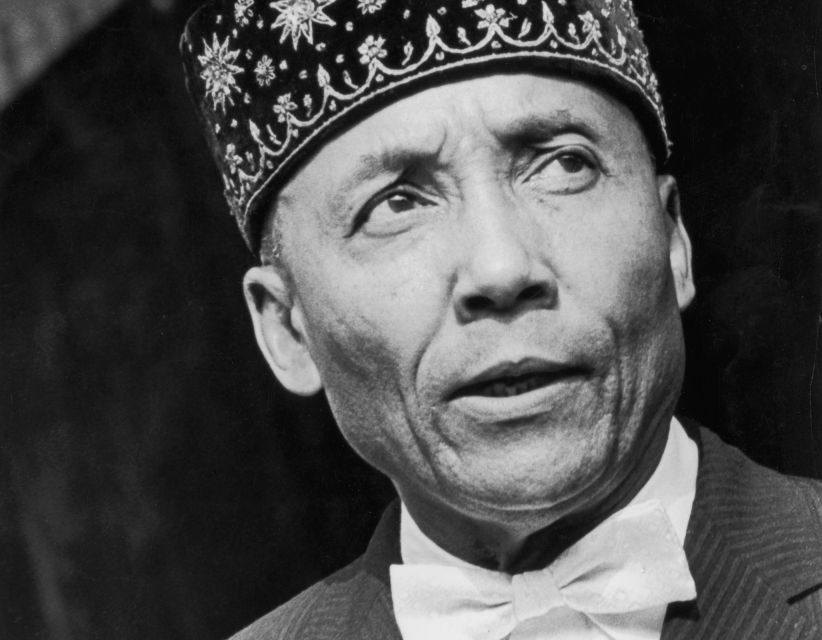
Over the course of history, we can point to many individuals who we would classify as “great leaders.” When analyzing someone’s leadership style, I often ask myself two very specific questions:
- As a leader, what qualities are they able to enhance within others?
- As a leader, what positive deposits do they make in the lives of those they lead?
I would dare say that one of the greatest examples, yet, one of the most overlooked or unappreciated leaders in history is The Honorable Elijah Muhammad of The Nation of Islam (NOI). He possessed what I call, “the two faces of leadership.” The ability to balance between the ideals of emotion and practicality.
Emotion
Elijah Muhammad’s relationship with El-Hajj Malik El-Shabazz, better known as Malcolm X, provides us the perfect display of this theory in action. For the purpose of this article, I will focus on the life of Brother Malcolm after he was released from prison, the early years of Malcolm’s involvement with Elijah and the NOI. It is through this connection of teacher and student that Mr. Muhammad displays to us the two faces of leadership. The first face being emotional leadership, which encompasses three key elements: passion, belief, and trust.
It is incumbent upon leaders to be able to spark within those they lead a deep sense of passion. Click To TweetFirst, Mr. Muhammad gave Malcolm X passion. It is incumbent upon leaders to be able to spark within those they lead a deep sense of passion. Here is where we must not be selfish as leaders. While keeping in mind the direction or overall vision, you must find that which connects the individual to purpose in the most authentic way possible. As a leader, are you able to motivate, encourage, and inspire someone to reach deep within themselves and extract the purpose of their soul?
You must find that which connects the individual to purpose in the most authentic way possible. As a leader, are you able to motivate, encourage and inspire someone to reach deep within themselves and extract the purpose of their… Click To TweetSecond, Mr. Muhammad gave Malcolm X belief. He created within Malcolm an unwavering commitment to imagine the possibilities of what could and should be. And I don’t mean his belief in the ideals of the NOI, rather, the capacity he created for Malcolm to believe in the possibilities of himself. Take record of those who follow you and ask yourself, have you truly created a commitment to the vital factor of one’s belief in their own ability, belief in their own intelligence, belief in their own creativity, but most importantly belief in their capacity to succeed? As a leader, it is your responsibility to affirm the very BEING of those you lead.
Ask yourself: have you truly created a commitment to the vital factor of one’s belief in their own ability, belief in their own intelligence, belief in their own creativity, but most importantly belief in their capacity to succeed? Click To TweetThird, Mr. Muhammad cultivated the concept of trust inside Malcolm X—an uncompromising trust. Now, I’ll admit this area can be tricky to navigate. We never want to promote blind trust or unchallenged loyalty. The hope as a leader should be to instill trust built on the ability to test perspectives and teachings, and through that experience, see those perspectives and teachings solidify themselves through encounters. Malcolm X had the ability to challenge or build with his teacher. Mr. Muhammad did not shy away from his teachings being contested, which provided Malcolm X the opportunity to see those teachings stand critique.
Practicality
The Honorable Elijah Muhammad’s ability to pull these elements out of Malcolm X was beautiful. However, it is not simply this that makes him a great leader. It was Mr. Muhammad’s capacity to pair this with the second face of leadership: practicality. What does passion look like in action? How does belief show up in practice? When modeled, how do we display trust in a concrete form? Similar to emotion, there are three key elements of practical leadership, each paired with its emotional brethren.
One of the most difficult things to corral is passion. However, it is imperative that we match passion with an intense and deliberate sense of direction. Direction is the first element of practical leadership. After cultivating Malcolm’s passion for the struggle of his people, Mr. Muhammad provided him the direction to deliver a message. Within his teachings there were clear instructions on the place of delivery, the method of delivery, and the time of delivery. I would venture to say nothing done by The Honorable Elijah Muhammad, Malcolm X, and the NOI was done without first examining all the ways in which this would affect the mission or the cause.
Doing so allows you to develop strategy or the opportunity to practice. This is the second element of practical leadership. Mr. Muhammad was unashamed and unapologetic in thrusting Malcolm X into heading one of the most prominent Mosques. From this position, Malcolm X was able to put his beliefs into practice. Not only through his ministry, but through organizing within the struggle for the liberation of his people. As a leader, it is not enough to simply foster belief—it is just as critical to provide as many opportunities for that belief to be carried out in real time.
Which brings me to one of the most pressing issues within leadership: trust. Your ability to move people is predicated on their capacity to trust you and your message. This is dependent upon them seeing what and whom they trust being challenged and one’s ability to withstand those challenges. The exposure to challenge or critique is the last element in the practical face of leadership. Each time Malcolm X preached, participated in a debate, or delivered a keynote (under the guidance of Mr. Muhammad), it provided the opportunity for their beliefs to be challenged and to stand firm against competing ideals. This, in and of itself, cultivated trust in the cause.
Your ability to move people is predicated on their capacity to trust you and your message. Click To TweetIn closing, leaders must wear two-faces in their roles. Leaders must grow and build their organizations, companies, clubs, groups, etc. from two different lenses. That of an emotional leader that sparks passion, fosters belief, and establishes trust. That of a practical leader who provides direction, implements opportunity for practice, and encourages a space for challenge or growth. The next time you do an inventory of your leadership, ask yourself, am I two-faced? In this instance, it’s a good quality—I promise.



















